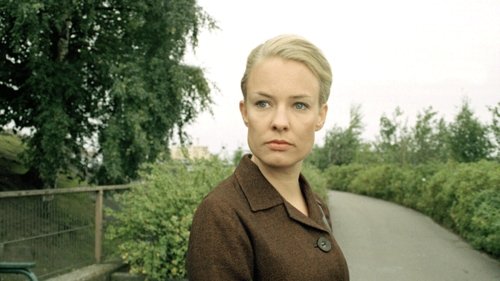Salla Tykka
dal 3/4/2007 al 16/6/2007
Segnalato da
3/4/2007
Salla Tykka
Bonniers Konsthall, Stockholm
Bestial Gazes

Bestial Gazes
From April 4 to June 17, Finnish artist Salla Tykkä’s latest film Zoo will be shown for the first time in Sweden, at Bonniers Konsthall. Tykkä, who has attracted attention around the world with her rare, highly charged films, principally investigates women’s experiences. More specifically, she depicts decisive moments in women’s personal development. Her films are close-ups of inner processes and magnifications of the significance of the moment. Rooted in the female perspective, Tykkä’s works problematise the relationship with the spectator. Viewer and viewed merge, and the division between subject and object becomes hard to sustain. The inspiration for Tykkä’s films unmistakably comes from Hollywood classics. Especially Zoo, which is a blatant pastiche of Hitchcock.
The film is shot in a zoo. Apart from a woman photographer and the caged animals that she looks at and photographs, the zoo is deserted. The encounter between the woman and the setting generates a tension that is expressed in an interplay of looking. The lone woman’s photographic gaze is met in all directions by animal gazes. Paradoxically, this woman moving at liberty seems to end up on the losing end of a power game that increasingly reflects a broader context.
An intense underwater-rugby match is being fought out in parallel with the events at the zoo. The images focus on the violent, emphatically masculine, claustrophobic aspects of the sport. The moves seem to follow the laws of nature. The interrelationship between the two fields of action in Zoo is not immediately obvious. Is the underwater battle in the woman’s mind, is it actually taking place, or is it a projection of a heightened emotional state?
Zoo has various links with Tykkä’s earlier films, which similarly investigate crucial moments in women’s experience. Tykkä situates the events in inner space, but with the outer environment and the film music taking the leading roles. She likes to play with the conventions of the classic Hollywood film, as in Lasso (2000) and Thriller (2001). In Zoo it is primarily the smartly dressed blonde heroine, the condensed editing and the dramatic music that summon echoes of film history, and especially of Alfred Hitchcock.
Tykkä graduated from the Academy of Fine Arts in Helsinki in 2003 and works with film, video and photography. Her works are a regular feature at exhibitions and film festivals all over the world. In Sweden she has shown at Tensta Konsthall in 2003, and elsewhere. Zoo won the Arte Short Film Award at the 22nd Hamburg International Short Film Festival in 2006. Salla Tykkä lives and works in Helsinki.
Artist's biography
Salla Tykkä’s works have been shown in solo exhibitions and film festivals all over the world. Zoo won her the Arte Short Film Award at the 22nd Hamburg International Short Film Festival in 2006. Tykkä is represented by Galerie Yvon Lambert, Paris & New York.
The Konsthall
Bonniers Konsthall in the centre of Stockholm is a new venue for Swedish and international contemporary art. With exhibitions, seminars, publications, a studio for guest artists and much more, Bonniers Konsthall aims to support the emergence of and to promote encounters with new art. Jeanette Bonnier is the founder of Bonniers Konsthall. Sara Arrhenius has been Director since 2005. The Konsthall is run on a non-profit basis by the Bonnier family under the auspices of The Bonnier Group. The Bonnier Group is one of Scandinavia’s biggest media concerns with operations in the daily press, magazines, books, film and television.
Bonniers Konsthall
Torsgatan 19 - Stockholm



